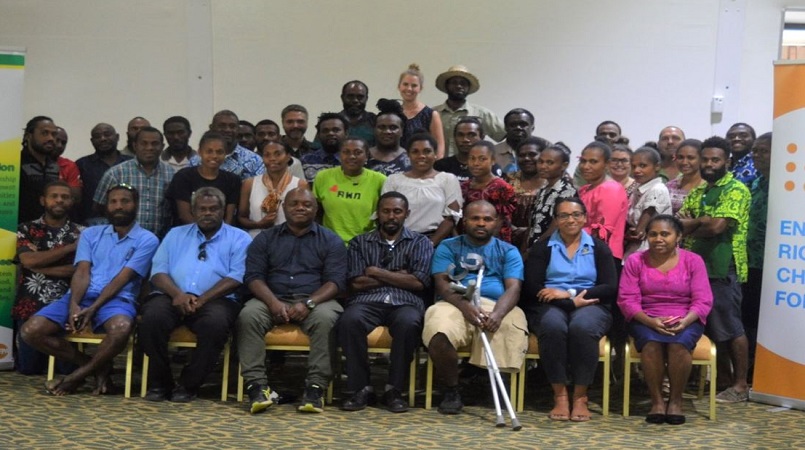
Youth stakeholders like the Vanuatu National Youth Council and partners have been discussing the development and action plan of a Youth Development Index.
The council’s Principal Administrator, Joe Kalo said according to the Statistics Census, youth population in Vanuatu covers 90,000 young people with an increase of 10 % from 2016 census to 2019 census.
“We have young people who are pushed out of the education system and we need to find out where they are, identify their needs and to work to address their needs. Therefore, having an Index in place will help us a lot in monitoring, evaluating and tracking progress in all areas for youth development in Vanuatu”, Mr Kalo said.
He said that young peoples need, challenges and stories don’t always stay the same. It changes depending on their way of living and their involvement within any area of settlement they resided in.”
“We want to acknowledge everyone’s effort towards youth development in Vanuatu for the past years. Everyone is doing great work and receiving great impact/ results for young people. But, we can’t monitor everything that you are doing. Our reporting and centralizing youth data is a big challenge for us”, Mr Kalo said to all youth stakeholders during the consultations.
He added that cooperation between all stakeholders and having the YDI in place will surely make a big difference for the challenge of reporting and monitoring youth development progress.
The consultation was organised by the Vanuatu National Youth Council (VNYC) and the Ministry of Youth Development and Sports (MoYDS) in collaboration with the Vanuatu National Statistics Office (VNSO) and the Department of Strategy, Policy, Planning and Aid Coordination (DSPPAC) with funding support from the United Nations Funds for Population Activities (UNFPA).
The consultation is centred on nine (9) domains, objected to understanding the youth development environment for the Government, civil society organisations and Non-Government Organisations (NGOs) and to identify the way forward for the index.
The domains are; health and wellbeing; education and training; gender equality; economic empowerment; civic engagement; information technology & communication, custom, culture, environment and justice.
According to VNYC, the YDI will act as a ‘data advocacy tool’ - highlighting the needs and opportunities for young people and monitoring & tracking progress for youth development.
